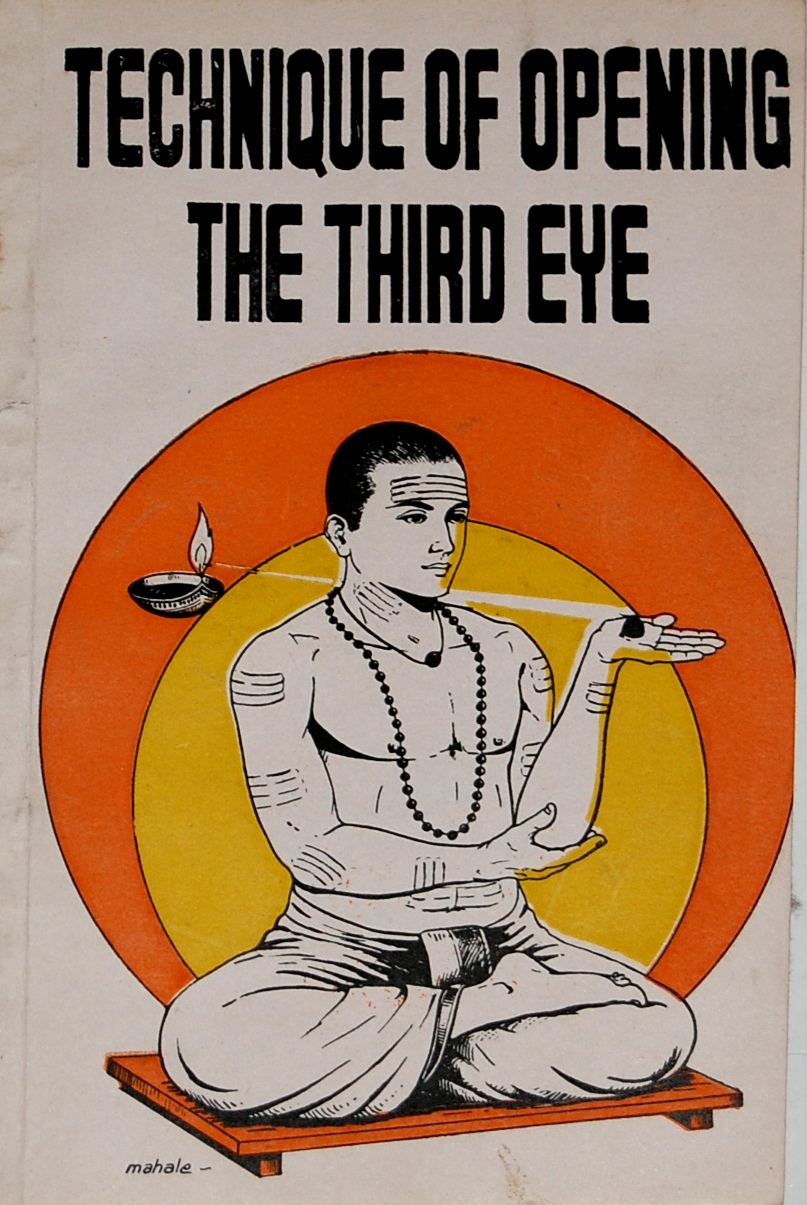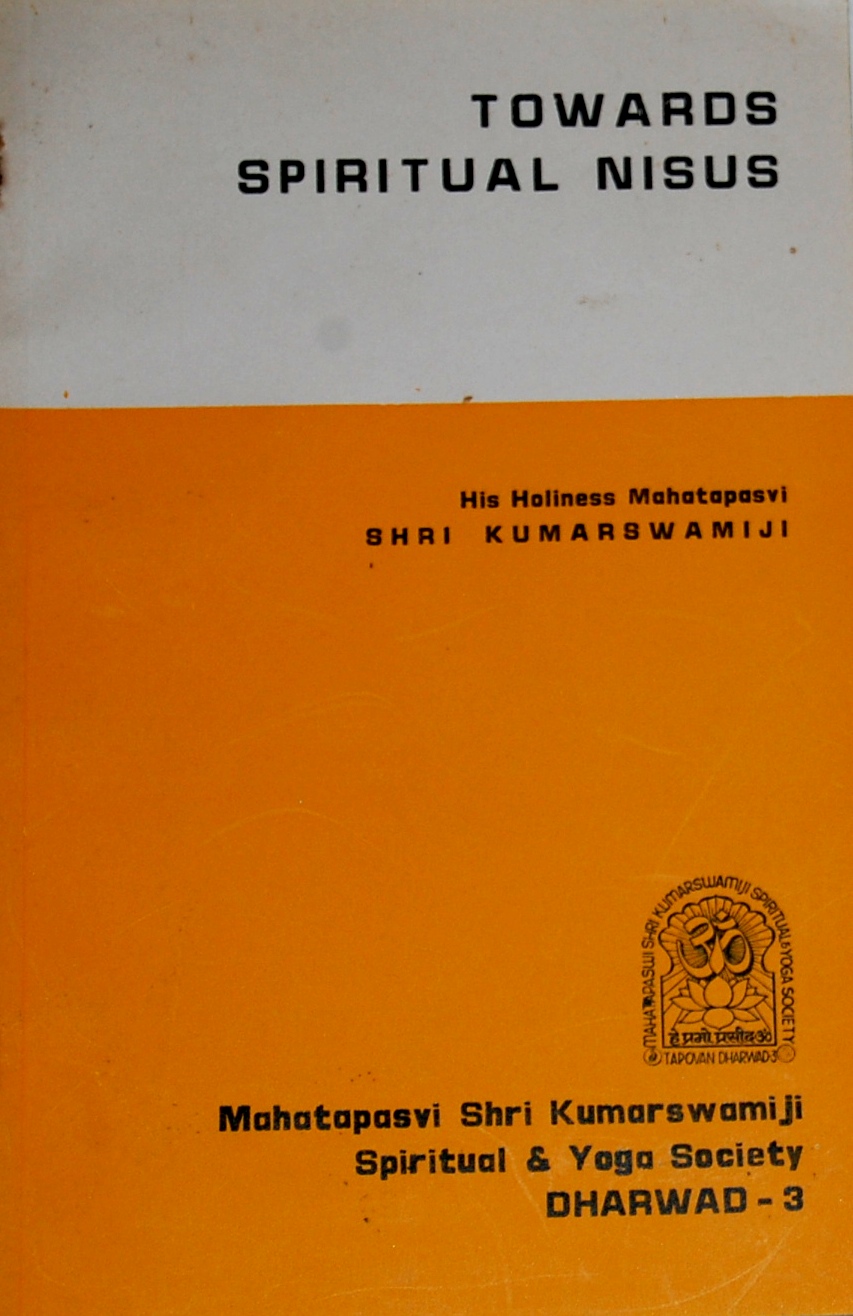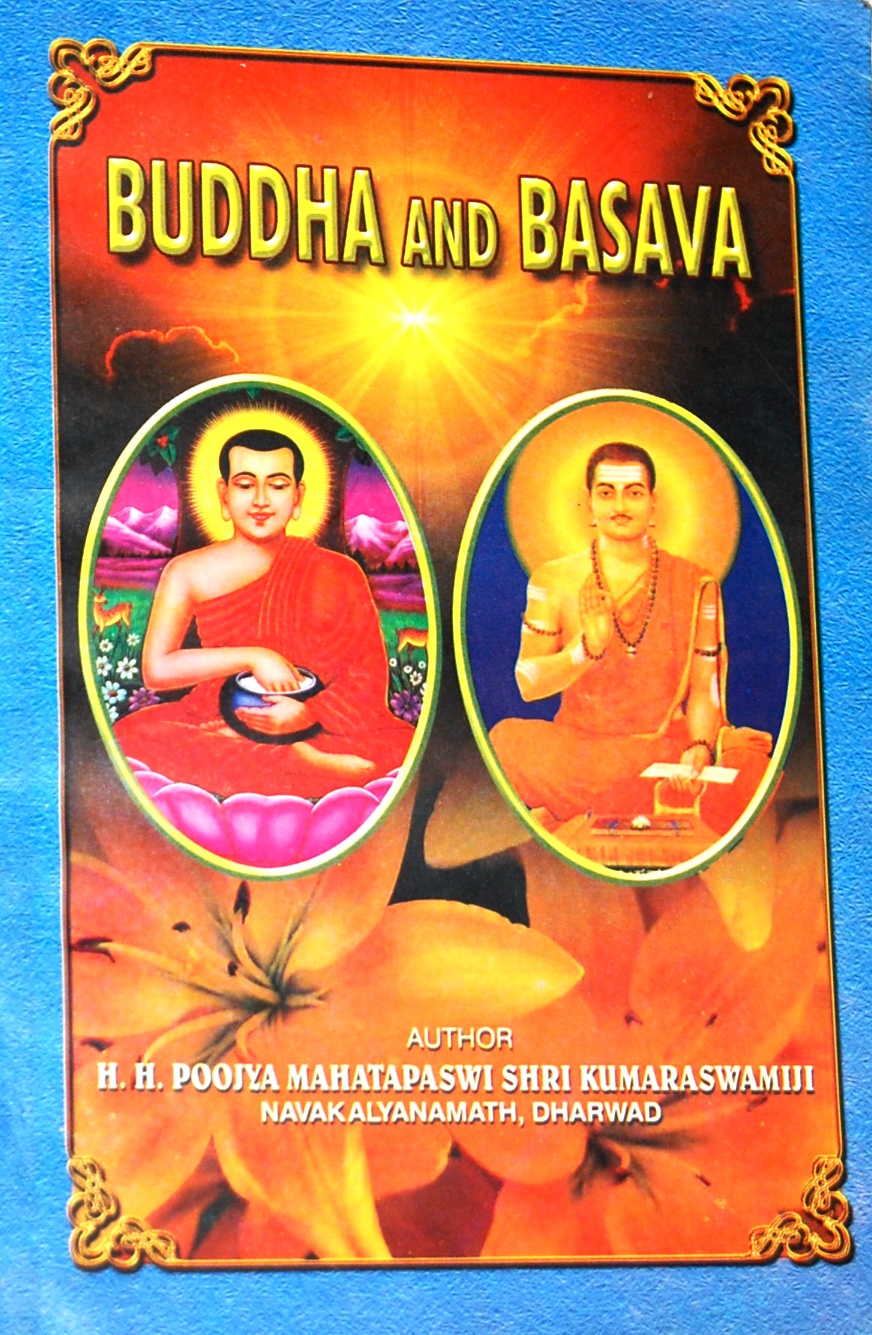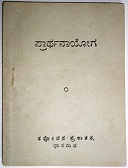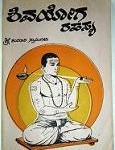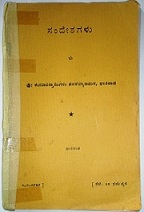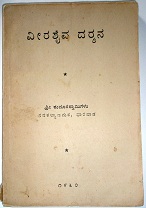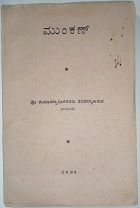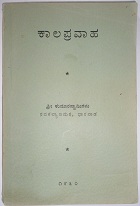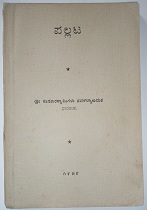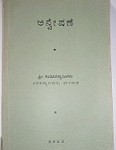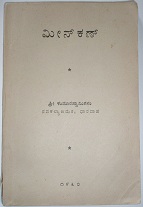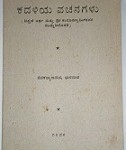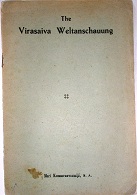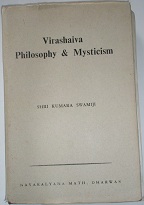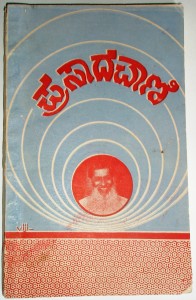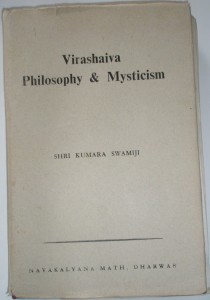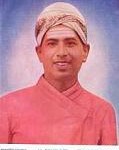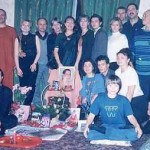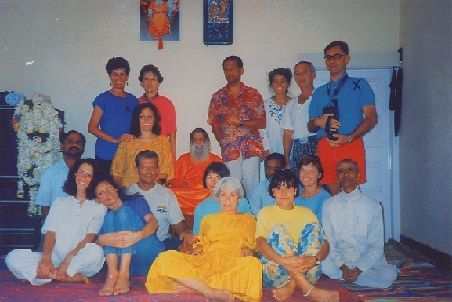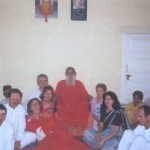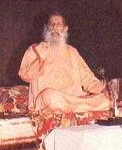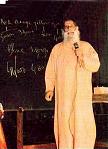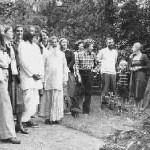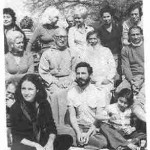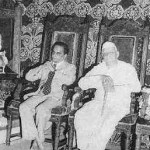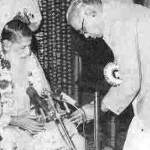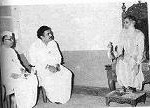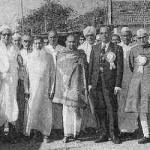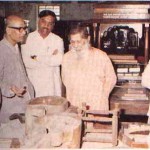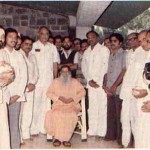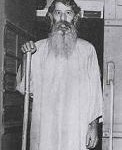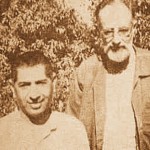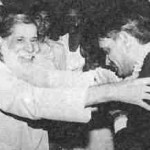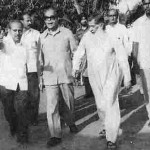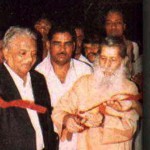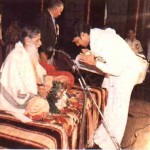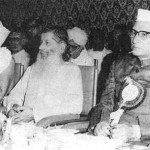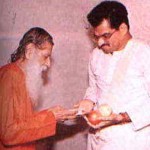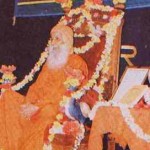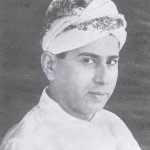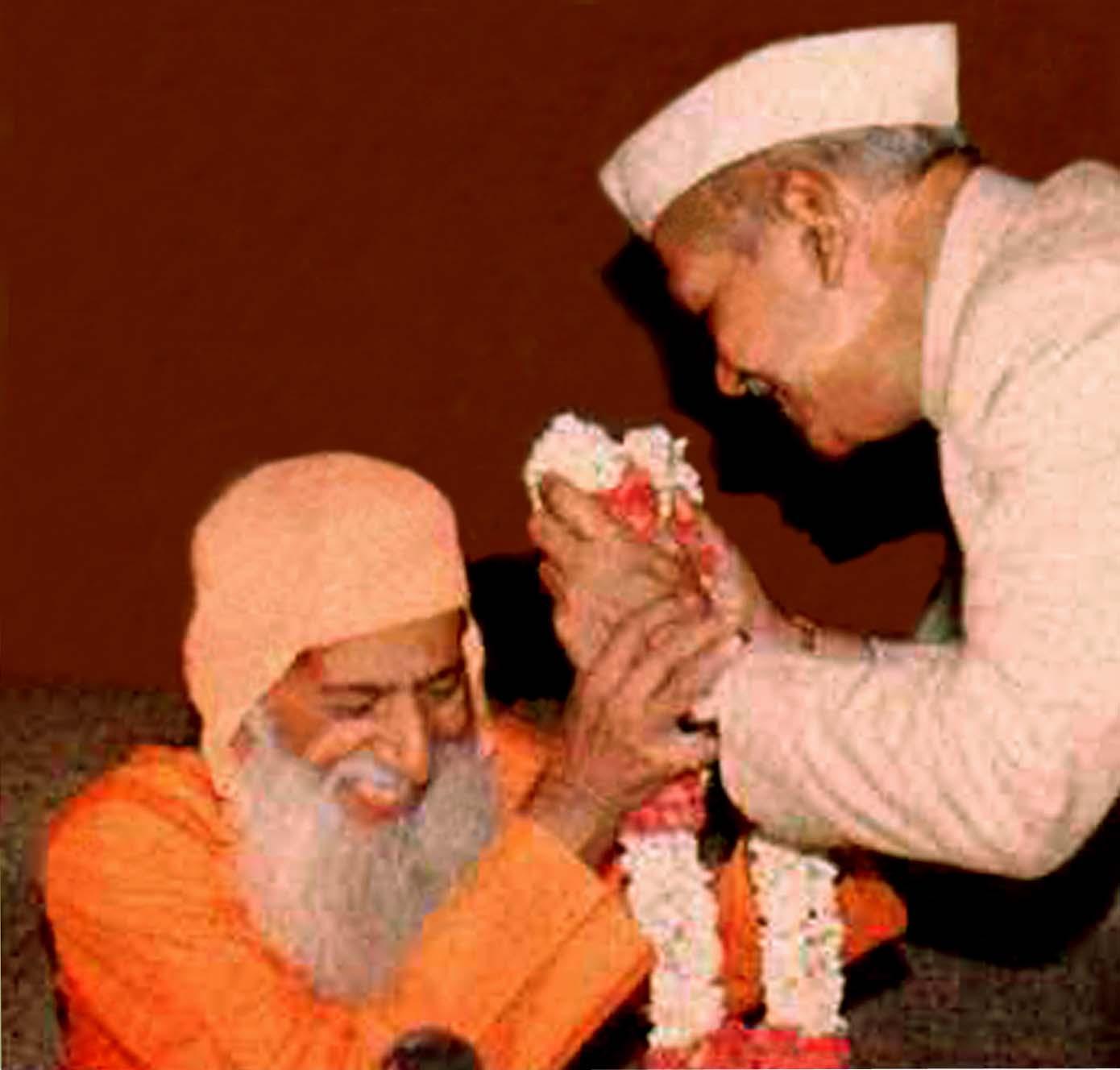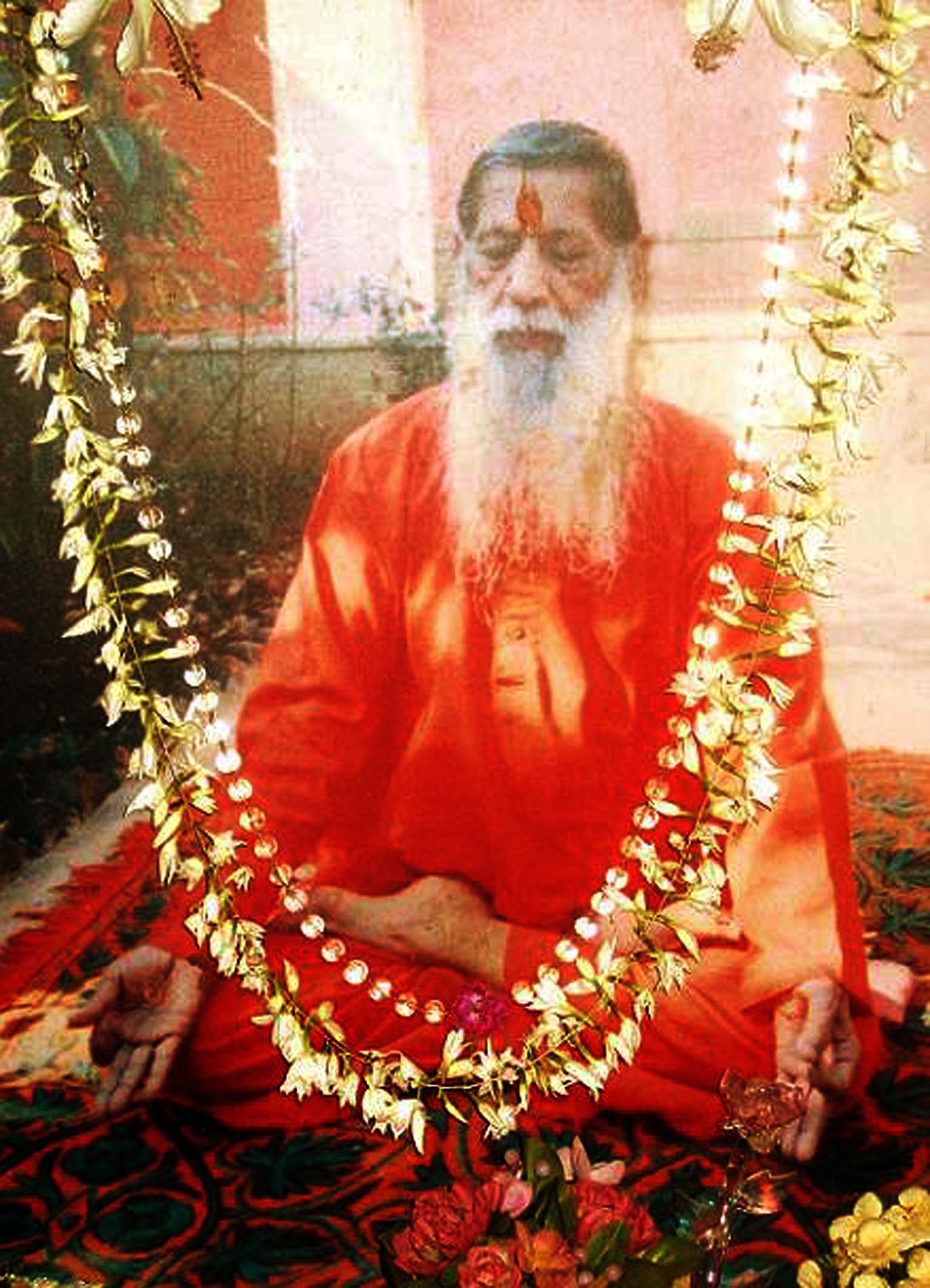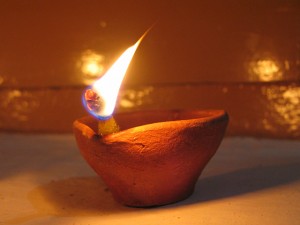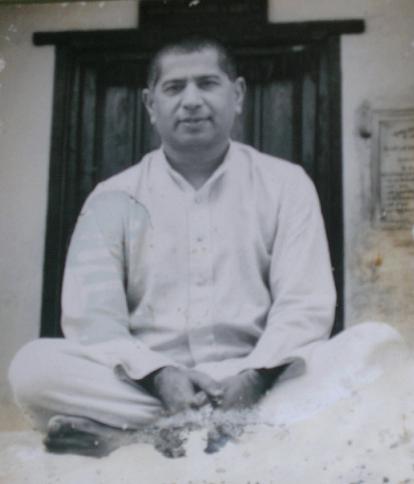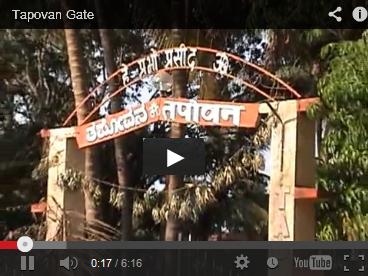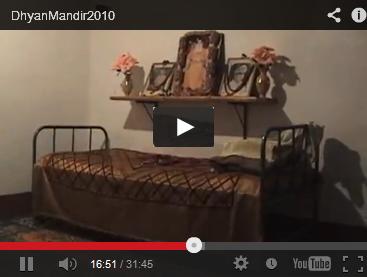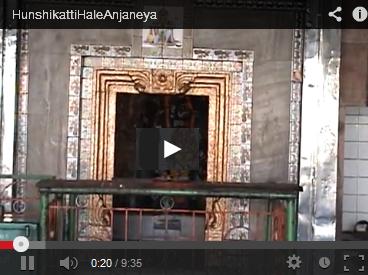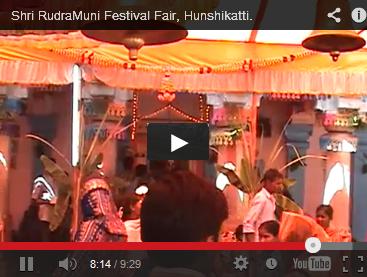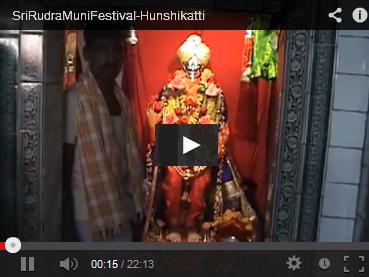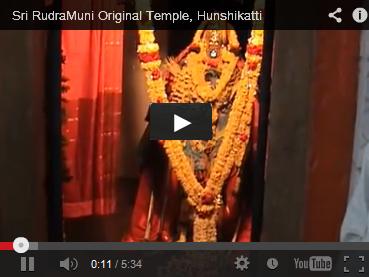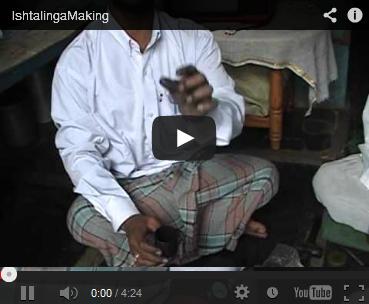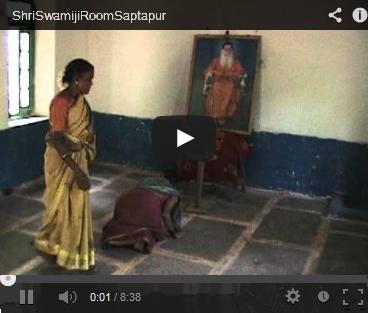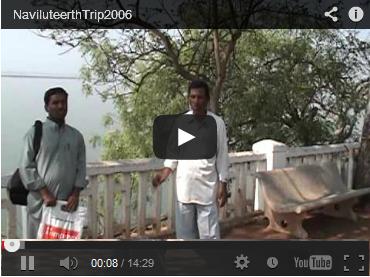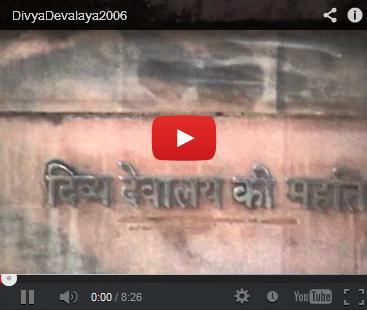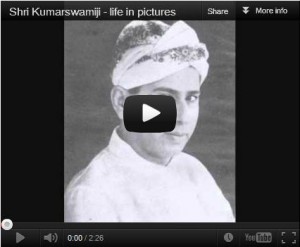The actions of great men are always suggestive and not exhaustive. Prabhu makes a clear annunciation of this fact in the twentieth chapter. The final chapter gives an account of a strange encounter of Prabhu with Goraksha. The encounter is between two adepts; one adamantine Hathayogi and the other an ardent Shivayogi with ethereal body. Prabhu demonstrated the greatness of Shivayoga over Hathayoga and Goraksha could not but accept this fact. The chapter ends with a stirring but touching end of the fate of the Sharanas of this golden epoch.
The Shunya-sampadane compiled by Gulura Siddhaviranna contains 21 chapters. The first chapter embodies a short history of the life of Prabhu, the evolution of his mystic experience in a manner befitting psychological states, his interview with Animisha under strange circumstances, the latter’s miraculous influence on Prabhu and the description of Jangama sthala which recalls the greatness and grandeur of the Divine Man upon earth. The second chapter contains a dialogue between Prabhu and Muktayakka, who was mourning the death of her beloved Ajaganna. Muktayakka was initiated into the secrets of Shivayoga by Ajaganna. She wanted to end her life, for she dearly loved Ajaganna both as a teacher as well as brother. Prabhu consoles her by impressing upon her the immortality of the soul and by stating that the departure of Ajaganna – the great mystic is not annihilation in death but an affiliation with the Divine. Finally he blesses her with enlightened knowledge of the Supreme. The third chapter gives a graphic account of the meeting between Prabhu and Siddharamayya, the two great adepts. Siddharama, a Karamyogi, was a great philanthropist with several virtuous deeds to his credit. Mere virtuous deeds may take one to heaven but cannot confer the necessary liberation. There is even the likelihood of there being an obstacle in the way of self-realization, Prabhu knowing this, meets Siddharama with a tender heart to dissuade him from his philanthropic activities. Finally Prabhu succeeds in his attempt to convert Siddharama to his view.
The fourth chapter deals with an incident that happened between Basava and Channabasava. Channabasava has harbored a secret longing to have his initiation from Basava. But Basava refused to initiate him on the ground that it would militate against his Brithyachara – the sense of humility and modesty. One day Channabasava handed over his Ishtalinga to Basava to test his Kala, but Basava returned it to Channabasava by refusing to do so, Channabasava was much pleased to receive it back from Basava, for he thought that the touch of Basava had charged the linga with divine electricity. Initiation means infusion of the spiritual energy into linga and Channabasava felt himself blessed as the touch of his linga by Basava had already done it. The fifth chapter gives an account of Basava’s failure to greet Prabhu when the latter arrives at his door. It is the confirmed opinion of Basava that Jangama is superior to linga, that the dynamic Divine is preferable to the static Divine. Hence the attitude of Basava towards Jangama, i.e. one who has realized the Divine Truth , is one of humility and surrender. This attitude is known as Brithyachara. Basava is known among the Sharanas as humility incarnate. Prabhu accompanied by Siddharama arrives at the residence of Basava, who being engrossed in the worship of his Ishtalinga does not personally greet Prabhu; instead he sends a messenger to greet Prabhu. Prabhu is enraged at Basava’s behavior, since it was a breach of Brithyachara. Basava then repents his action and Prabhu forgives this lapse of conduct towards the Jangamas. The sixth chapter is an important one as it deals with an event of an adept, who apparently a simpleton, is well-versed in the supreme knowledge and light. The adept’s name is Marula Shankardeva, precious little is known about background. He sat in the dust bin in front of Basava’s home. Though Basava caught glimpses of him, but failed to notice and recognize him and his accomplishments. He did not even say hello to Shankardeva. Since Basava failed to recognize the greatness and accomplishments of Shankaradeva, Prabhu reveals the identity of Shankaradeva. Basava regrets his oversight and indifference towards Shankaradeva. The throng of the Sharanas assembled at the Mahamane, consequent upon the arrival of Prabhu, offer their meed and homage to Shankaradeva, who in turn pays homage to them all and feels himself blessed at the sight of Prabhu. Shankardeva had for a long time been longing to see Prabhu. He was waiting for Prabhu to show up at the residence of Basava, for his intuition has suggested that Prabhu would sooner or later be showing up at Basava’s home. So Shankaradeva announces the end to his quest of meeting Prabhu and feels overjoyed at the sight of liberated one. But the end of Shankaradeva is surcharged with electricity! It is unique and unprecedented. There are no parallel instances to compare. In the presence of Prabhu and other Sharanas, Shankaradeva vanishes into thin air without leaving a trace! At this turn of event all those who witnessed this transformation were somewhat shaken. They marveled at his demonstration of the total identity of matter and radiation and the defiance of the physical laws of nature.
In the seventh chapter, Prabhu honours Basava for his devoted service (Dasoha) to the Sharanas. His service brings to light, by implication, a general loftiness of sentiments, a consciousness of good intentions, self-oblivion if great objects and a trust in God as the great Giver and Forgiver. Being impressed by the personality of Basava, Prabhu forgets himself in the joy and openly expresses that he learnt the secrets of service from Basava. The eighth chapter contains Prabhu’s word pf grace given in respect of Pranalinga to Channabasava. Pranalinga is the inner light.
Prabhu extols the greatness of Pranalinga and describes its beauty and sublimity. His advice to Channabasava is : “Walk in the light and thou shall see thy path brighter; for Linga (God) shall dwell in thee and God himself is the light.” In the ninth chapter Prabhu reveals to Madivala the secret of Guru, Linga and Jangama and their inter-relationship. Guru is the preceptor, Linga is the principle and Jangam is the person. Guru points out the principle that guides the progress of pilgrim on his/her chosen path. Guru and Linga are, as it were, sentiment and principle. Sentiment has its seat in the head; principle in the hand. Sentiment is called Shira-sthala which knows what is right; and principle, the Kara-sthala, which practices it. Jangama is the person who embodies the Truth of sentiment and principle is the Ura-sthala, the heart-center. Knowledge and action are harmonized in love.
The tenth chapter comprises the act of investing Siddharama with Ishtalinga by Channabasava. The need of Ishtalinga and its wearing upon the body is stressed by all Sharanas. It is not enough to say that God is within but that he is also without; it is not enough to say that God is abstract and impersonal but that He is also concrete and personal. This is the confirmed opinion of the Sharanas. Ishtalinga is the concrete and personal aspect of God. The worship of the Ishtalinga confers delight upon the devotee. The element of thought is not enough; the element of delight must also be grasped. If abstraction gives us the concept of God’s truth, the concrete image gives us its living reality. It is in this strains that all the saints have argued with Siddharama. The process of initiation completes itself by paying the homage to Guru and the partaking of the Prasad (the consecrated food and water). Immediately after the initiation of Siddharama, this process is to be effected in right earnest. The eleventh chapter describes this process of paying homage to Prabhu, where he is seen from a different angle of view and vision. All Sharanas praise him in different tones and tunes and from different perspectives.
The twelfth chapter gives a graphic account of a saint named Ayadakki Marayya, a rice gleaner. Marayya ekes out his living by gleaning the rice from the fields in as much a quantity as is necessary for his family’s daily sustenance. That was his Kayaka. One day he brings more than he should have. His wife rebukes him for the lapse in his vow and vocation (Kayaka). Lakkamma, Marayya’s wife, ascertains that the desire to possess even a little more than needed for the daily living and entertaining of the Sharanas is a sign of impurity for the Sharanas. This chapter unfolds the two traits – the selflessness of the Sharana and the sacredness of Kayaka. The thirteenth chapter relates the story of a King of Kashmir who voluntarily abdicated his throne to follow the principles of Basava and live up the gospel of Kayaka. The King’s kayaka was to sell fire-wood. Hence his name is Marayya. Even with the meager means, Marayya and Mahadevi (his wife) were expected to feed the Jangamas (guests). They performed this task admirably. The simplicity of their lives, the sincerity of their purpose and the sublimity of their thought are brought to light. In this chapter the dignity of work (Kayaka) is delineated in altogether from a different perspective. A Sharana, Chandayya by name, earned his livelihood, by making grass-ropes. So he came to be known as Nooliya Chandayya, the rope maker. His devotion to his kayaka and his selfless service are so impressive that he hardly cares to take up his Linga when it slips into a stream. These three chapters, namely the 12th, 13th and 14th speak eloquently of the dignity and divinity of Kayaka (the work ethic). That is what Basava taught the Sharanas at various sessions of the Anubhava Mantapa. Basava told that a man must work no matter what his/her station/status in life is and to transform work into worship by selfless service to his fellow beings. There is no work so lowly that he may not exalt it; no work so earthly that he may not breathe a soul into it; no work so dull that he may not enliven it.
In the fifteenth chapter, which is known as the sampadane of Ghattivalayya, there is a parody of the sham jangamas who wear the religious insignia only to eke out a living. Basava reverses the religious insignia but reproves the inconsistency of conduct. Ghattivalayya educated under the influence of Basava, does not scruple to ridicule the multitude of Jangamas who flock and frequent Basava’s abode for food. When Ghattivalayya is put to severe test by the irritated Jangama’s, he transforms a big boulder into a Ishtalinga. Even Prabhu was astonished at this event. The sixteenth chapter recounts the life story of Akkamahadevi and her unprecedented achievement. By temperament she is an ascetic. She can stand up with any mystic of India or any other country of this globe. She excels all others in her ascetic accomplishments; particularly when one takes into account her young age, she outshines the rest. She is incomparable. Her musical musings and outpourings excel those considered to be best in the world, both in content, metaphysical insight, inspirational outcry, rhythm and composition. She comes to Basava’s home covering her physical body with her abundant tresses. Kinari Bommanna as the representative of Basava’s residence puts her to severe test and she emerged triumphant. All the Sharanas who had gathered at the Anubhava Mantapa, marvel at her wisdom and incomparable accomplishments. She was not the one to be swayed away from her goal by anybody, including the intellectual and highly respected Prabhudeva’s arguments. A sixteen year old girl with little of the worldly experience battles with the mightiest of the Anubhava Mantapa. Prabhu was not the one to be easily pleased and persuaded either. He wants to show the congregation that the true Sharana must pass severe test before he/she could receive the initiation. The meeting of these two intellectual mystics is a poignant moment to behold! It is, in fact, the most heart-touching event that took place during Prabhudeva’s tenure as the President of the Shunya Sinhasana. Prabhu finally gives in and blesses Akkamahadevi. He unfolds for her the secrets of Reality. He tells where, when and how she can achieve Aikya with Channamallikarjuna.
The seventeenth chapter contains an account of Prabhu’s travels. On the even of his departure, he exhorts all Sharanas to ensoul the truth he has revealed. Nearly twelve years have elapsed since his departure. Yet, his arrival is not imminent. Basava and host of others await his arrival with expectant heart. Meanwhile Basava, visualizing the arrival of Prabhu telepathically, erects the pontifical throne outside. Prabhu arrives in disguise. Still Basava’s insight is penetrating enough to recognize Prabhu. The eighteenth chapter describes the effect of the advent of Prabhu and his ascent of the Shunya-sinhasana. Basava looks at the glory of the throne with amazed avidity. He pays homage to Prabhu, serves him, sings his praise and rolls in ecstatic joy, forgetting himself in the act of surrender. This attitude of Basava enrages the sham Jangamas, who hasten to quit the assembly. Basava feels grieved at their departure and Prabhu allays his fears and grief. The consoling words of Prabhu and the conversation of Basava are depicted here with great dexterity. In the nineteenth chapter, there is an account of the strange manner of Prabhu’s partaking of fare. He eats all the food prepared for the daily service of the Jangamas who frequent Basava’s home. Yet, Prabhu is not satisfied and he asks for more. Basava and Channabasava, becoming bewildered at the turn of events offer themselves as food and pickle to Prabhu. There upon Prabhu feels himself satisfied and his satisfaction appeases the hunger of all the assembled Sharanas. Basava and his colleagues appeared on the scene to reveal the way of God to man and redeem the world from sin and suffering. To this end, they laboured hard and fulfilled their mission, however abortive it was in the end.
The actions of great men are always suggestive and not exhaustive. Prabhu makes a clear annunciation of this fact in the twentieth chapter. The final chapter gives an account of a strange encounter of Prabhu with Goraksha. The encounter is between two adepts; one adamantine Hathayogi and the other an ardent Shivayogi with ethereal body. Prabhu demonstrated the greatness of Shivayoga over Hathayoga and Goraksha could not but accept this fact. The chapter ends with a stirring but touching end of the fate of the Sharanas of this golden epoch.
The actions of great men are always suggestive and not exhaustive. Prabhu makes a clear annunciation of this fact in the twentieth chapter. The final chapter gives an account of a strange encounter of Prabhu with Goraksha. The encounter is between two adepts; one adamantine Hathayogi and the other an ardent Shivayogi with ethereal body. Prabhu demonstrated the greatness of Shivayoga over Hathayoga and Goraksha could not but accept this fact. The chapter ends with a stirring but touching end of the fate of the Sharanas of this golden epoch.
The Shunya-sampadane compiled by Gulura Siddhaviranna contains 21 chapters. The first chapter embodies a short history of the life of Prabhu, the evolution of his mystic experience in a manner befitting psychological states, his interview with Animisha under strange circumstances, the latter’s miraculous influence on Prabhu and the description of Jangama sthala which recalls the greatness and grandeur of the Divine Man upon earth. The second chapter contains a dialogue between Prabhu and Muktayakka, who was mourning the death of her beloved Ajaganna. Muktayakka was initiated into the secrets of Shivayoga by Ajaganna. She wanted to end her life, for she dearly loved Ajaganna both as a teacher as well as brother. Prabhu consoles her by impressing upon her the immortality of the soul and by stating that the departure of Ajaganna – the great mystic is not annihilation in death but an affiliation with the Divine. Finally he blesses her with enlightened knowledge of the Supreme. The third chapter gives a graphic account of the meeting between Prabhu and Siddharamayya, the two great adepts. Siddharama, a Karamyogi, was a great philanthropist with several virtuous deeds to his credit. Mere virtuous deeds may take one to heaven but cannot confer the necessary liberation. There is even the likelihood of there being an obstacle in the way of self-realization, Prabhu knowing this, meets Siddharama with a tender heart to dissuade him from his philanthropic activities. Finally Prabhu succeeds in his attempt to convert Siddharama to his view.
The fourth chapter deals with an incident that happened between Basava and Channabasava. Channabasava has harbored a secret longing to have his initiation from Basava. But Basava refused to initiate him on the ground that it would militate against his Brithyachara – the sense of humility and modesty. One day Channabasava handed over his Ishtalinga to Basava to test his Kala, but Basava returned it to Channabasava by refusing to do so, Channabasava was much pleased to receive it back from Basava, for he thought that the touch of Basava had charged the linga with divine electricity. Initiation means infusion of the spiritual energy into linga and Channabasava felt himself blessed as the touch of his linga by Basava had already done it. The fifth chapter gives an account of Basava’s failure to greet Prabhu when the latter arrives at his door. It is the confirmed opinion of Basava that Jangama is superior to linga, that the dynamic Divine is preferable to the static Divine. Hence the attitude of Basava towards Jangama, i.e. one who has realized the Divine Truth , is one of humility and surrender. This attitude is known as Brithyachara. Basava is known among the Sharanas as humility incarnate. Prabhu accompanied by Siddharama arrives at the residence of Basava, who being engrossed in the worship of his Ishtalinga does not personally greet Prabhu; instead he sends a messenger to greet Prabhu. Prabhu is enraged at Basava’s behavior, since it was a breach of Brithyachara. Basava then repents his action and Prabhu forgives this lapse of conduct towards the Jangamas. The sixth chapter is an important one as it deals with an event of an adept, who apparently a simpleton, is well-versed in the supreme knowledge and light. The adept’s name is Marula Shankardeva, precious little is known about background. He sat in the dust bin in front of Basava’s home. Though Basava caught glimpses of him, but failed to notice and recognize him and his accomplishments. He did not even say hello to Shankardeva. Since Basava failed to recognize the greatness and accomplishments of Shankaradeva, Prabhu reveals the identity of Shankaradeva. Basava regrets his oversight and indifference towards Shankaradeva. The throng of the Sharanas assembled at the Mahamane, consequent upon the arrival of Prabhu, offer their meed and homage to Shankaradeva, who in turn pays homage to them all and feels himself blessed at the sight of Prabhu. Shankardeva had for a long time been longing to see Prabhu. He was waiting for Prabhu to show up at the residence of Basava, for his intuition has suggested that Prabhu would sooner or later be showing up at Basava’s home. So Shankaradeva announces the end to his quest of meeting Prabhu and feels overjoyed at the sight of liberated one. But the end of Shankaradeva is surcharged with electricity! It is unique and unprecedented. There are no parallel instances to compare. In the presence of Prabhu and other Sharanas, Shankaradeva vanishes into thin air without leaving a trace! At this turn of event all those who witnessed this transformation were somewhat shaken. They marveled at his demonstration of the total identity of matter and radiation and the defiance of the physical laws of nature.
In the seventh chapter, Prabhu honours Basava for his devoted service (Dasoha) to the Sharanas. His service brings to light, by implication, a general loftiness of sentiments, a consciousness of good intentions, self-oblivion if great objects and a trust in God as the great Giver and Forgiver. Being impressed by the personality of Basava, Prabhu forgets himself in the joy and openly expresses that he learnt the secrets of service from Basava. The eighth chapter contains Prabhu’s word pf grace given in respect of Pranalinga to Channabasava. Pranalinga is the inner light.
Prabhu extols the greatness of Pranalinga and describes its beauty and sublimity. His advice to Channabasava is : “Walk in the light and thou shall see thy path brighter; for Linga (God) shall dwell in thee and God himself is the light.” In the ninth chapter Prabhu reveals to Madivala the secret of Guru, Linga and Jangama and their inter-relationship. Guru is the preceptor, Linga is the principle and Jangam is the person. Guru points out the principle that guides the progress of pilgrim on his/her chosen path. Guru and Linga are, as it were, sentiment and principle. Sentiment has its seat in the head; principle in the hand. Sentiment is called Shira-sthala which knows what is right; and principle, the Kara-sthala, which practices it. Jangama is the person who embodies the Truth of sentiment and principle is the Ura-sthala, the heart-center. Knowledge and action are harmonized in love.
The tenth chapter comprises the act of investing Siddharama with Ishtalinga by Channabasava. The need of Ishtalinga and its wearing upon the body is stressed by all Sharanas. It is not enough to say that God is within but that he is also without; it is not enough to say that God is abstract and impersonal but that He is also concrete and personal. This is the confirmed opinion of the Sharanas. Ishtalinga is the concrete and personal aspect of God. The worship of the Ishtalinga confers delight upon the devotee. The element of thought is not enough; the element of delight must also be grasped. If abstraction gives us the concept of God’s truth, the concrete image gives us its living reality. It is in this strains that all the saints have argued with Siddharama. The process of initiation completes itself by paying the homage to Guru and the partaking of the Prasad (the consecrated food and water). Immediately after the initiation of Siddharama, this process is to be effected in right earnest. The eleventh chapter describes this process of paying homage to Prabhu, where he is seen from a different angle of view and vision. All Sharanas praise him in different tones and tunes and from different perspectives.
The twelfth chapter gives a graphic account of a saint named Ayadakki Marayya, a rice gleaner. Marayya ekes out his living by gleaning the rice from the fields in as much a quantity as is necessary for his family’s daily sustenance. That was his Kayaka. One day he brings more than he should have. His wife rebukes him for the lapse in his vow and vocation (Kayaka). Lakkamma, Marayya’s wife, ascertains that the desire to possess even a little more than needed for the daily living and entertaining of the Sharanas is a sign of impurity for the Sharanas. This chapter unfolds the two traits – the selflessness of the Sharana and the sacredness of Kayaka. The thirteenth chapter relates the story of a King of Kashmir who voluntarily abdicated his throne to follow the principles of Basava and live up the gospel of Kayaka. The King’s kayaka was to sell fire-wood. Hence his name is Marayya. Even with the meager means, Marayya and Mahadevi (his wife) were expected to feed the Jangamas (guests). They performed this task admirably. The simplicity of their lives, the sincerity of their purpose and the sublimity of their thought are brought to light. In this chapter the dignity of work (Kayaka) is delineated in altogether from a different perspective. A Sharana, Chandayya by name, earned his livelihood, by making grass-ropes. So he came to be known as Nooliya Chandayya, the rope maker. His devotion to his kayaka and his selfless service are so impressive that he hardly cares to take up his Linga when it slips into a stream. These three chapters, namely the 12th, 13th and 14th speak eloquently of the dignity and divinity of Kayaka (the work ethic). That is what Basava taught the Sharanas at various sessions of the Anubhava Mantapa. Basava told that a man must work no matter what his/her station/status in life is and to transform work into worship by selfless service to his fellow beings. There is no work so lowly that he may not exalt it; no work so earthly that he may not breathe a soul into it; no work so dull that he may not enliven it.
In the fifteenth chapter, which is known as the sampadane of Ghattivalayya, there is a parody of the sham jangamas who wear the religious insignia only to eke out a living. Basava reverses the religious insignia but reproves the inconsistency of conduct. Ghattivalayya educated under the influence of Basava, does not scruple to ridicule the multitude of Jangamas who flock and frequent Basava’s abode for food. When Ghattivalayya is put to severe test by the irritated Jangama’s, he transforms a big boulder into a Ishtalinga. Even Prabhu was astonished at this event. The sixteenth chapter recounts the life story of Akkamahadevi and her unprecedented achievement. By temperament she is an ascetic. She can stand up with any mystic of India or any other country of this globe. She excels all others in her ascetic accomplishments; particularly when one takes into account her young age, she outshines the rest. She is incomparable. Her musical musings and outpourings excel those considered to be best in the world, both in content, metaphysical insight, inspirational outcry, rhythm and composition. She comes to Basava’s home covering her physical body with her abundant tresses. Kinari Bommanna as the representative of Basava’s residence puts her to severe test and she emerged triumphant. All the Sharanas who had gathered at the Anubhava Mantapa, marvel at her wisdom and incomparable accomplishments. She was not the one to be swayed away from her goal by anybody, including the intellectual and highly respected Prabhudeva’s arguments. A sixteen year old girl with little of the worldly experience battles with the mightiest of the Anubhava Mantapa. Prabhu was not the one to be easily pleased and persuaded either. He wants to show the congregation that the true Sharana must pass severe test before he/she could receive the initiation. The meeting of these two intellectual mystics is a poignant moment to behold! It is, in fact, the most heart-touching event that took place during Prabhudeva’s tenure as the President of the Shunya Sinhasana. Prabhu finally gives in and blesses Akkamahadevi. He unfolds for her the secrets of Reality. He tells where, when and how she can achieve Aikya with Channamallikarjuna.
The seventeenth chapter contains an account of Prabhu’s travels. On the even of his departure, he exhorts all Sharanas to ensoul the truth he has revealed. Nearly twelve years have elapsed since his departure. Yet, his arrival is not imminent. Basava and host of others await his arrival with expectant heart. Meanwhile Basava, visualizing the arrival of Prabhu telepathically, erects the pontifical throne outside. Prabhu arrives in disguise. Still Basava’s insight is penetrating enough to recognize Prabhu. The eighteenth chapter describes the effect of the advent of Prabhu and his ascent of the Shunya-sinhasana. Basava looks at the glory of the throne with amazed avidity. He pays homage to Prabhu, serves him, sings his praise and rolls in ecstatic joy, forgetting himself in the act of surrender. This attitude of Basava enrages the sham Jangamas, who hasten to quit the assembly. Basava feels grieved at their departure and Prabhu allays his fears and grief. The consoling words of Prabhu and the conversation of Basava are depicted here with great dexterity. In the nineteenth chapter, there is an account of the strange manner of Prabhu’s partaking of fare. He eats all the food prepared for the daily service of the Jangamas who frequent Basava’s home. Yet, Prabhu is not satisfied and he asks for more. Basava and Channabasava, becoming bewildered at the turn of events offer themselves as food and pickle to Prabhu. There upon Prabhu feels himself satisfied and his satisfaction appeases the hunger of all the assembled Sharanas. Basava and his colleagues appeared on the scene to reveal the way of God to man and redeem the world from sin and suffering. To this end, they laboured hard and fulfilled their mission, however abortive it was in the end.
The actions of great men are always suggestive and not exhaustive. Prabhu makes a clear annunciation of this fact in the twentieth chapter. The final chapter gives an account of a strange encounter of Prabhu with Goraksha. The encounter is between two adepts; one adamantine Hathayogi and the other an ardent Shivayogi with ethereal body. Prabhu demonstrated the greatness of Shivayoga over Hathayoga and Goraksha could not but accept this fact. The chapter ends with a stirring but touching end of the fate of the Sharanas of this golden epoch.
This article is taken from H.H.Shri Kumarswamiji-s book, ‘Veerashaivism: Comparative Study of Allama Prabhu,Basava,Shunya Sampadane and Vachana Shastra’.
This article is taken from H.H.Shri Kumarswamiji-s book, ‘Veerashaivism: Comparative Study of Allama Prabhu,Basava,Shunya Sampadane and Vachana Shastra’.








